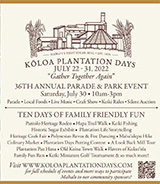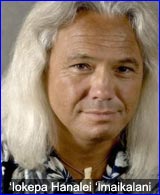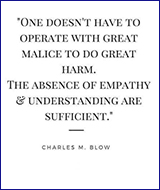Race Relations and the Power of Love
March 17, 1977
Friends have asked me to repost a personal story about my college basketball team's historic Cinderella victory over national powerhouse UCLA Bruins during the 1976-77 season. This victory is arguably one of the biggest upsets in NCAA basketball history, as the Bruins under the guidance of Coach John Wooden dominated the game like no other team — winning 10 national titles in only twelve years. It is doubtful any men's program will ever match their success.

Scott Goold and Coach John Wooden
Although this is a story about a basketball game decades ago, it demonstrates the miraculous Power of Love. The seeds in this love chain were planted in 1957 when Mary Petrea (Trea) Goold and Robert Harold (Bob) Goold gave birth to their first child and only son, Scott, in Hattiesburg, Mississippi. In the late 1950s, Black athletes were not allowed to compete at this southern college. This traumatized both my parents. Tragically, this area continues to be characterized by stubborn and entrenched racism, inhumane treatment of minorities, and unacceptable ignorance.

Mary Petrea (Trea) Goold and Robert Harold (Bob) Goold, circa 1956
My parents met at the University of Idaho, while my father was a scholarship basketball player. He enrolled after serving Team USA in the Korean War, as a Navy enlistee on the aircraft carrier USS Kearsarge. Due to a coaching change at Idaho, they transferred to the University of Southern Mississippi.
As a morale booster and distraction from horrors of war, the military provided a forum for competitive sports. Playing under the decks of aircraft carriers and other make shift venues, my father demonstrated sufficient prowess to earn a basketball scholarship to play after he completed his military service. The scholarship and his G.I. bill allowed both my parents to further their education. I was born in their first year at USM. Teammates entertained themselves teaching me to shoot in my crib. My parents earned their Bachelor's and advanced degrees in education and continued a lifelong pursuit as educators, as they dedicated their lives unselfishly to helping others.
While the ISU v. UCLA game remains a cherished memory, the impact on American culture is part of a beautiful evolution in race relations and of far greater importance than those of us who participated.
Highlights from ISU's Victory over Powerhouse UCLA Bruins
Highlights from ISU's Victory over Powerhouse UCLA Bruins
FULL GAME, including pre-game, commericials, and halftime commentary.
Full Broadcast Game of ISU's Victory over Powerhouse UCLA Bruins
It is recognized military service and competitive sports have been effective equalizers in race and human relations. One finds the color of a person's skin irrelevant when fighting next to him (or her) while dodging bullets in a foxhole or pinned down in war zone. Athletes on the court or gridiron are similarly unconcerned about racial differences while seeking victory in sport.
My parents matured into adulthood in both environments and championed the Civil Rights movement that dominated the 1960s and early 1970s. Post-college, my parents landed teaching positions in my mother's home state of Idaho. My father also coached high school basketball and their journey led them to southeastern Idaho — home of the Idaho State Bengals.
Pocatello, Idaho remains one of the "Whitest" places in America. It's also heavily Mormon and the church didn't end the prohibition against Blacks entering in the Priesthood until 1978. Our coach, Jim Killingsworth (photo left), was a decent, good human being, yet he told my father and I when recruiting me he opposed "too many Blacks" on the team because it created problems with discipline. He sought smart, good-character White athletes who would attend classes regularly and not be "problems" in the community.

Standing L-R: Head Coach Jim Killingsworth, Mark McQuaid, Gene Bowen, Stan Klos, Steve Hayes, Jeff Cook
Greg Griffin, Paul Wilson, Brand Robinson, Asst Coach Charlie Finskey
Kneeling L-R: Kelly Gardner, Earnie Wheeler, Ed Thompson, Scott Goold, Brian Bemis, Grad Asst Matt Stranigan
Although I was a sophomore and starting guard on this Cinderella team, I was just a baby. Was young for my class and should have been a freshman. However, my greatest contribution wasn't on the court. My closest friend, #14, senior Ed Thompson, was one of the best (and unknown) point guards in the country. He came to ISU as a JuCo (junior college) transfer. After about a month into his first year, Ed told me he was leaving. He hated Pocatello and ISU. It was simply "too White." There were only a few Black men on campus and hardly any Black women. He was terribly lonely.
I grabbed his packed luggage and threw his clothes across the room. Told him I wouldn't let him leave. I had been a center in high school and selfishly needed his mentorship. Was also smart enough to know without him, our team would never amount to much. I loved him as a friend, player and human being, and stuck by him like glue after this.
We did everything together from that point forward. I introduced him to my family, and since I was a local boy, knew most people in town. Did whatever I could to make him feel at home. It worked. Ed stayed. Without him, we never would have become the Giant Killers over UCLA.
Ed also invited me deeper into the small Black community in the area. I had attended all-White Highland high school, yet played baseball and basketball with players from our rival and only other city high school, Pocatello.
Many of their greatest athletes were Black. My mother worked at a heavily Black school teaching first grade. I was fortunate to be welcomed into Black culture. Loved Motown, Funk, and the smooth jazz sounds played by Big Russ Sanders on his Sunday night public radio station program.

Russell "Big Russ" Sanders: Humanitarian and Friend
I wore flashy, colorful Walt "Clyde" Frazier suits to high school dances with beautiful Lassies, such as Penny Holman Fisher or Bernadette Park. We were quite poor and my mother handmade clothes for me. My White high school friends referred to me an inside out Oreo — white on the outside, black inside. For fun Ed taught me how to braid my hair. Taught me more about race relations and mentored me as a Big Brother on the court. As a freshman, I sucked as a point guard. Due primarily to Ed, I started as a sophomore. He was Batman; I was Robin. We made an excellent dynamic duo in the backcourt.

Steve Hayes defends future Hall of Famer Marques Johnson
Most of our team were misfits. Our phenomenal 7' center, #33, Steve Hayes, and lifelong friend, came from a small town in Idaho. He was super skinny 6'9 out of high school, and due to the power of a concentrated peanut diet, magically bulked up into an NBA talent. Steve is shown defending future Hall-of-Famer, Marques Johnson above. Jeff Cook, #32, was a thin 6'5 when he left West Covina, California for ISU. He was 6'9 and powerful by this season, his junior year, and continued a lengthy pro career. Greg Griffin, #30, was a rogue player. He was a journeyman out of Pasadena JuCo, and was the oldest member of our team due to serving in the military before returning to college. He was one of the quickest, smoothest players I ever met — a sweet left-hander with a feathery jump shot.
Combined, we were a total bunch of outlaws. Yet we all loved basketball and competed passionately. Our coach was an a**hole most of the time. He wasn't called "Killer" for nothing. At our post-season awards banquet, someone asked what brought us together. Stan Klos, #35, was the most honest and cynical member of our team. He told fans we came together in our collective "hatred" of Coach K.
We all despised Killer at times — yet also loved him as only players can love a coach who demands and drives his team to excellence. He screamed incessantly, with spit and foul language flying from his mouth, and one time, even choked on his false teeth due to his rage.
He abused us emotionally; ran us into the ground physically; and caused us tremendous pain. However, we got better. He turned misfits into champions! In a sense, particularly in his perceptions about race and Black athletes, he was a misfit as well. Together, we did the impossible. We changed ourselves, our team, our community, and in a small way, we changed America for the better.
Paul Wilson, #20, was one of the most explosive leapers I ever witnessed. He could fly better than Jordan. Yet he was hindered with small hands and had a difficult time gripping the ball. He is one of the finest human beings I ever met. I thought he would be president of the United States or something one day. Everybody loved Paul — especially women.
Brand Robinson, #22, came from Montana. We were the only freshman recruits Killer signed for the 1975-76 season. We were also like brothers and Brand was an amazing, pure shooter. Didn't have the 3-point line then — too bad. Brand rarely shot closer in. Freshman Ernie Wheeler, #12, had a great game against UCLA. He was a coach's son and surfer boy from SLO, California. We became loyal friends over the years.
Without our African American brothers, ISU would never have made history. Without Ed Thompson, ISU would never have made it to the NCAA dance. Due to my small contribution, without ScottyG, Ed would not have stayed in the nearly all-White area of southeastern Idaho. The picture below features "Easy Ed" Thompson and his lovely wife, Jackie, as we all celebrated the 40th anniversary of the historic NCAA victory.

Easy Ed Thompson and wife, Jackie, 2017
Many others added to our victory. Without Sherann Glorfield's famous chocolate cherry cakes or Glenn Alford's sports information campaign; without the support of the tens of thousands of fans who cared nothing about the color of a person's skin but rather the character in their heart and soul, this magic would not have happened.
Due in part to the frustration Ed and other Black athletes on our team suffered, as well as those in football and track programs, ISU began recruiting more African America students in general. The forward-looking administration recognized the difficulty minority groups suffered being overwhelmingly isolated.
Sports opened doors, as well as hearts and minds. Many joked when the Mormon Church finally renounced their prohibition against Black men entering the church priesthood claiming the real reason was BYU needed to become more competitive in sport. Today, sports in America are dominated by Black athletes. Looking back, it's fascinating how the smallest of actions can become the greatest of victories.
In Loving Memory to my mother, Mary Petrea (Knudsen) Goold.
UPDATE 3.20.15: Friends, fans and family have shared with me this story touched their hearts passionately. I want to dedicate these joyous memories to my parents, Bob and Trea Goold. My mother is currently in the hospital recovering from a bad fall and I wish her a speedy recovery.
I thank my father for the endless hours he sacrificed to make me the ballplayer I became. His coaching allowed me to earn a scholarship at ISU and eventually be on the floor in this historic game. My mother thanklessly served as our informal team manager. At the same time, she dedicated her life as a first grade teacher helping young children, primarily minority boys and girls at Bonneville elementary school. She taught me compassion, particularly for people not exactly like me.
My father's guidance allowed me to recognize I needed teammates such as Ed Thompson et al to become a better player and be part of a championship team. My mother's leadership developed a sense of empathy in my heart for the needs of others. We had a great team, a phenomenal collection of players and coaches in 1976-77. Had I only recognized Ed Thompson's skills on the court, rather than his isolation and loneliness when practice was over, our collective greatness would never have been revealed.
Essentially, this is the yin and yang of life; the balance between skills and love that all of us must seek. I hope this lesson transcends this fantastic and historic game. Together, whether a couple, family or nation, we are strong together and weak when divided. Live love and aloha always. Mahalo Ke Akua
UPDATE 3.22.15: Doctors notified us today the condition of my mother, Mary Petrea Goold, has turned critical and she is not expected to recover. She suffers much pain and has requested to be removed from life support. This is consistent with the courage demonstrated by her mother, my grandmother, Wilma Knudsen. Both told us they refuse to be a burden on family or society as their light of life slowly dims toward the ultimate passing we all must face.
Please keep her in your thoughts and prayers. She dedicated her life to giving others less fortunate and in need a better life. She touched so many hearts and minds, while bringing joy and hope to countless. I love you eternally, mom!
I am blessed to have been raised by such a loving, unselfish and compassionate mother and friend. The story I wrote above about my historic experience in sport focused on the Power of Love. Both my mother and father devoted their lives to ensuring their children never lacked for love. Our family struggled frequently to make ends meet, as millions of lower middle class families do. Yet there wasn't a single day, not ever for a minute, that we lacked love. All who knew my mother testify that her commitment to love extended far beyond her immediate family and to all she encountered in this brief moment we call life.

Left: Scott and Trea, 1998, at Scott's marriage ceremony
In Memory: January 10, 1935 — March 23, 2015. I thank all of you for your gracious thoughts, wishes and prayers. My mother began her eternal journey early this morning, 3:15am MDT, surrounded by her loving family. Her passing was peaceful and relieved her of this worldly pain. Her legacy is continued by her husband, Robert (Bob) Harold Goold; children: Scott, Kari and Dianne; four grandchildren: Brittany, Ashleigh, Jenny and Andy; and two great grandchildren: Cadence and Cohen.







